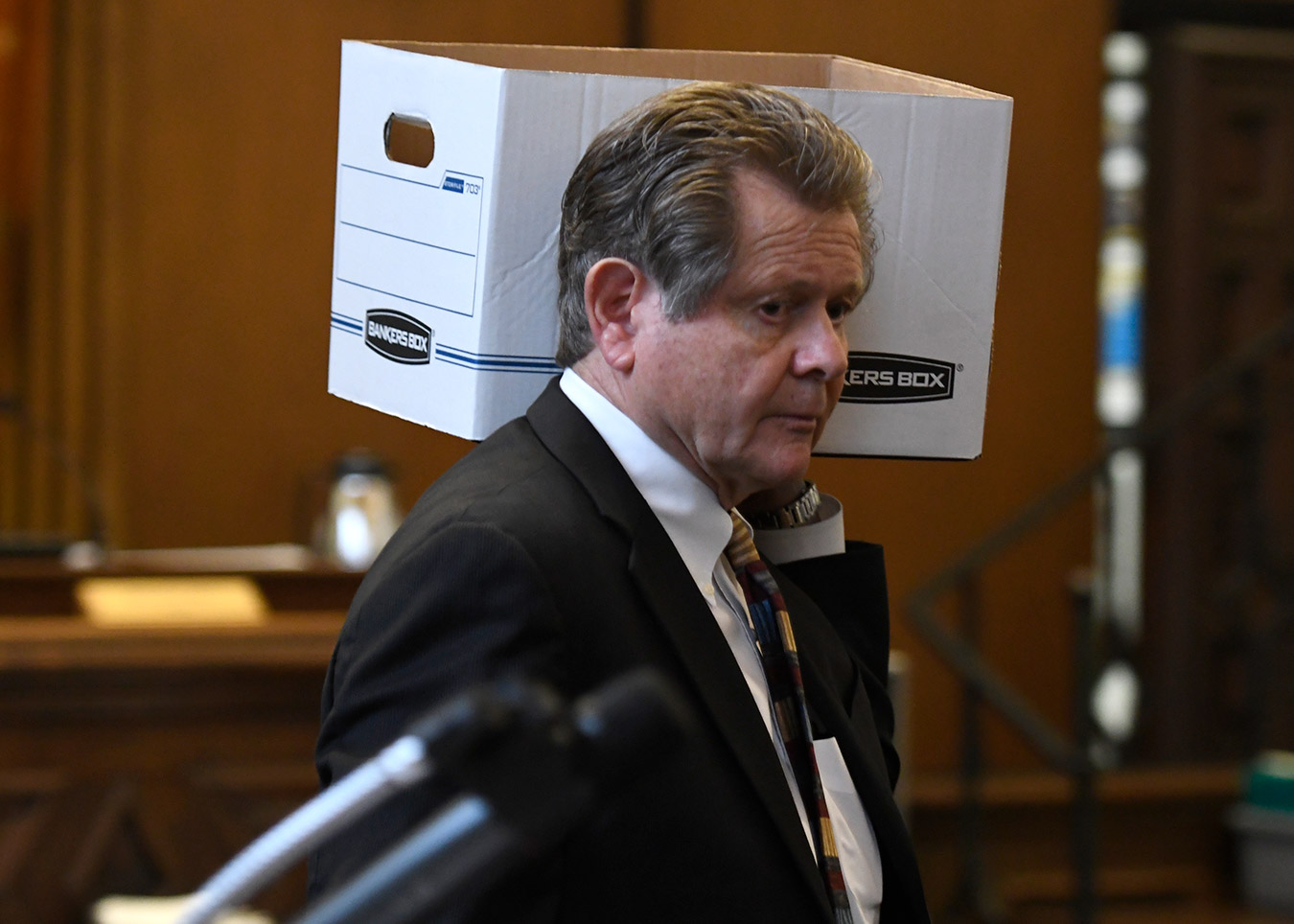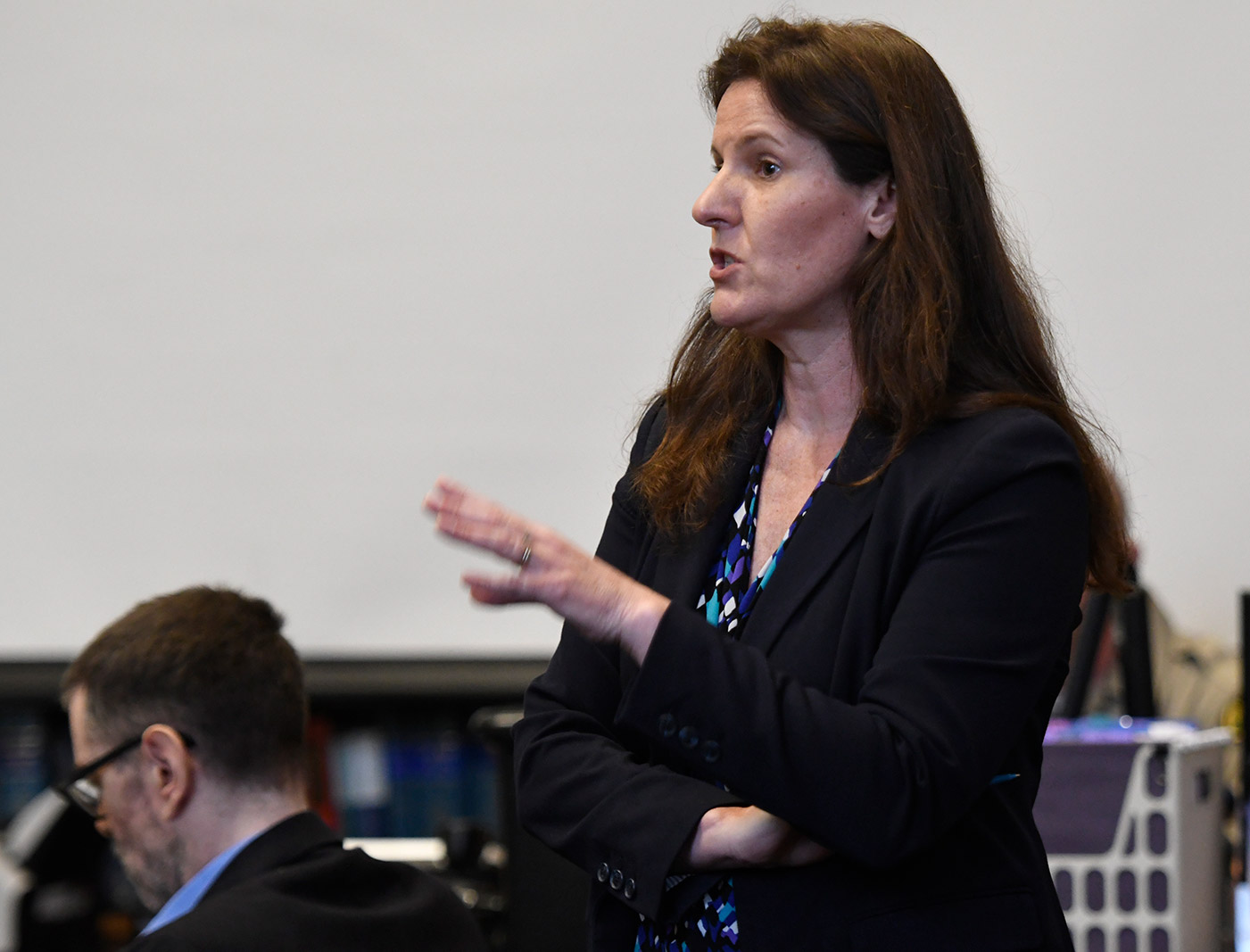A Tough Day for Prosecution in Holzer Case
Expert Witness Struggled During Cross-Examination

Monday was a serious bad-hair day for veteran prosecutor Ron Zonen. First, his expert witness — Encino-based forensic psychiatrist David Glaser — was forced to admit to ethical lapses: He’d prescribed the morning-after pill for a client with whom he’d had a sexual relationship and was put on probation by the state psychiatric association. Then Glaser was forced to admit under cross-examination he’d been removed from a psychiatric panel that he continues to list on his professional résumé.
Glaser had been hired by Zonen, one of the county’s premier prosecutors, to conduct a psychiatric evaluation of Nicolas Holzer, who four years ago stabbed his father, mother, two sons, and the family dog to death, to determine whether Holzer was legally sane or insane at the time of the killing. It’s a tricky question. At issue in this trial is whether Holzer could morally distinguish between right and wrong when he murdered his family. If he couldn’t, Judge Brian Hill will have to find Holzer not guilty by reason of insanity. If he could, Holzer will be sentenced to prison the rest of his life.
At the time of the killing — and many times since — Holzer told investigators and psychiatrists that he had to kill his family to save them from the eternal damnation he believes awaits him. “I felt I had to do it,” Holzer told Glaser, “because I’m going to hell for eternity.” For much of the past 20 years, Holzer has believed he’s one of the most evil people on the planet. He claims to have killed people on every continent and holds himself personally responsible for — among many things — the spread of AIDS and the carnage inflicted by the atom bombs dropped on Japan. Since 1995, Holzer has also twice attempted suicide and has twice been locked up in psychiatric hospitals.
Based on a two-hour videotaped interview conducted 17 hours after the murder, Glaser concluded Holzer clearly understood the difference between right and wrong. Holzer’s insistence that he had to kill his family to save it, Glaser stated, was an effort to avoid and deflect responsibility. But in court Monday, it appeared Glaser’s interview of Holzer violated medical ethics established by the American Psychiatric Association, which bars members from conducting psychiatric evaluations of people facing criminal charges who lack legal representation. At the time of the interview, Holzer had no attorney. His current attorney, Christine Voss, is a heavy hitter with the Public Defender’s office. Voss grilled Glaser: “Do you violate the ethical guidelines every time you do forensic evaluations, then?” Glaser replied, “Of course not.”

He testified that Holzer’s case history is not at all typical of other delusional cases he’s seen. He expressed serious doubt about Holzer’s claim — first made two years after being arrested — that God told him to kill his family. Glaser said he found the timing of that assertion “convenient” and “self-serving.” The fact that Holzer said he tried to kill his parents quickly so they did not suffer proved he could distinguish between right and wrong. The fact Holzer experienced no relief after the killing — as Holzer also stated — was further proof, Glaser argued, that he knew that his actions were morally wrong.
Holzer’s psychiatric history provides ample evidence from which both sides can make a case. Glaser echoed arguments made by Zonen questioning the depth of Holzer’s psychosis; both made much of the fact Holzer went 10 years — 1999-2009 — without psychiatric intervention, medication, or serious incident. Glaser likewise highlighted a court-ordered psychological evaluation conducted in 2007 when Holzer and his wife, Juanita, were going through a bitterly contested divorce and custody battle over their two kids. Based on that evaluation, Judge Thomas Anderle awarded Holzer sole custody.
Voss peppered Glaser with instances in which Holzer described accidental car deaths as evidence of his essential evil. These accidents took place on dark, unlit roads, Voss pointed out, adding they had only happened in Holzer’s tortured imagination. Holzer also blamed himself for shooting and killing someone trying to shoot a friend. The story was one of self-defense, Voss stressed, but noted it never actually happened. “His concept of right and wrong is a little off-kilter, isn’t it?” Voss asked.
When Glaser accused Holzer of trying to “dispose” of the murder weapon, Voss pounced. She said Holzer had in fact put the two knives neatly on the countertop, rinsed his hands, and called 9-1-1. Would someone seeking to avoid responsibility do that? she asked. Judge Hill interjected to wonder the same thing.
Voss argued that Holzer struggled with two terrible choices: to kill his family or to have them go to hell with him. There was no right from wrong to distinguish in his psychotic and delusional state, only really bad from much worse. Judge Hill interjected again, asking Glaser directly whether that scenario was possible. Glaser suggested “the most efficacious” course open to Holzer was to commit suicide. But when pressed, the expert witness fumbled. “That’s a tough question,” he answered. “Anything’s possible. I’m not sure.”



